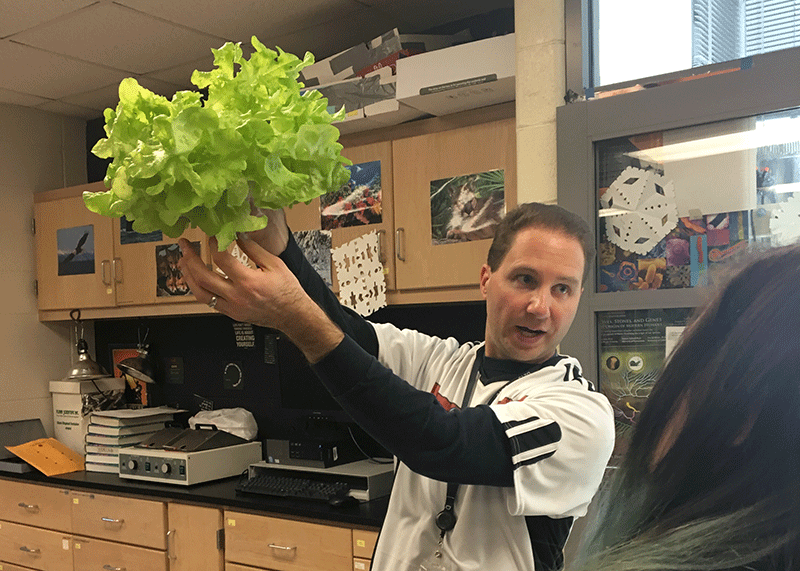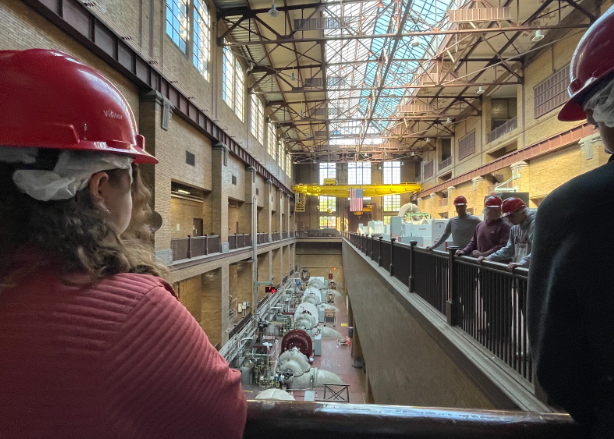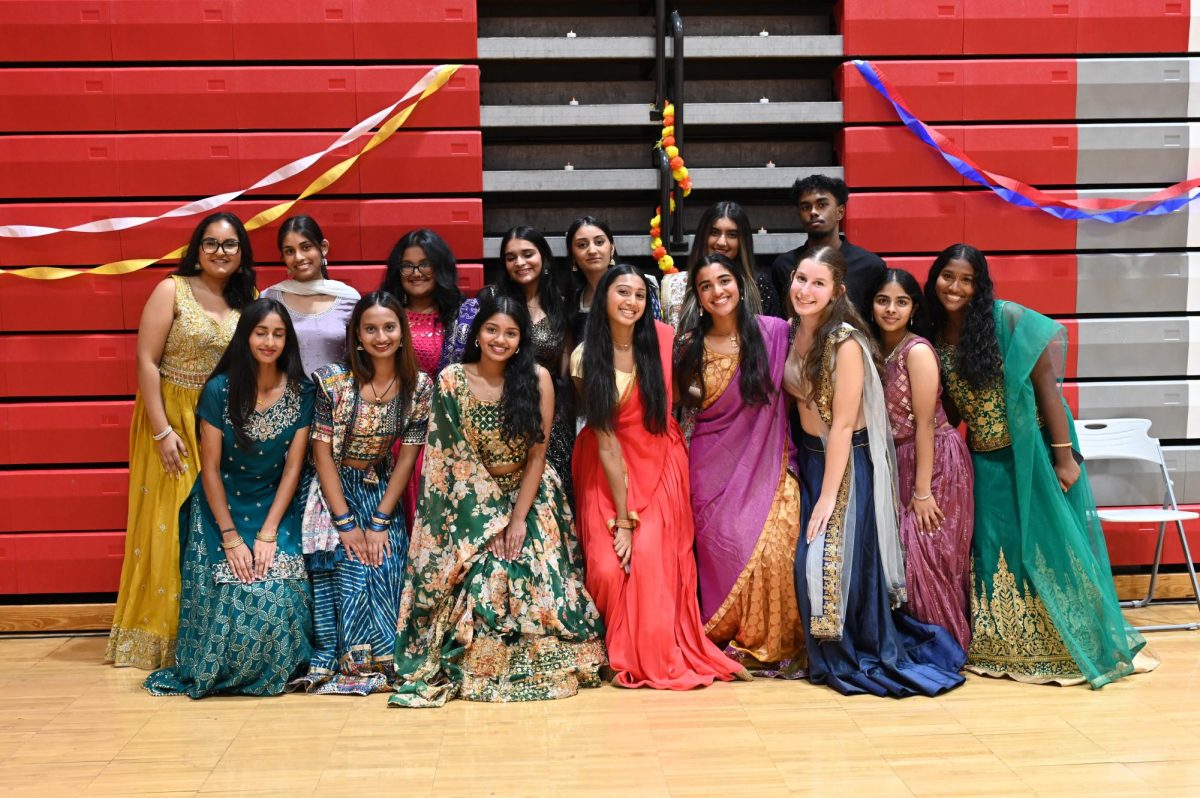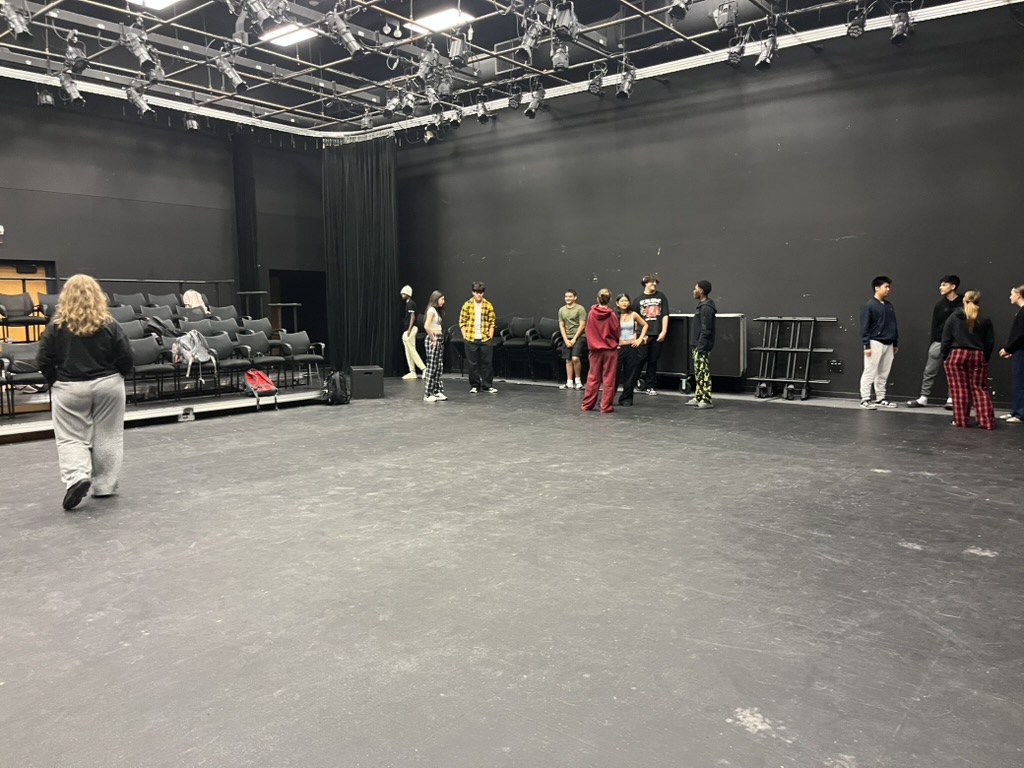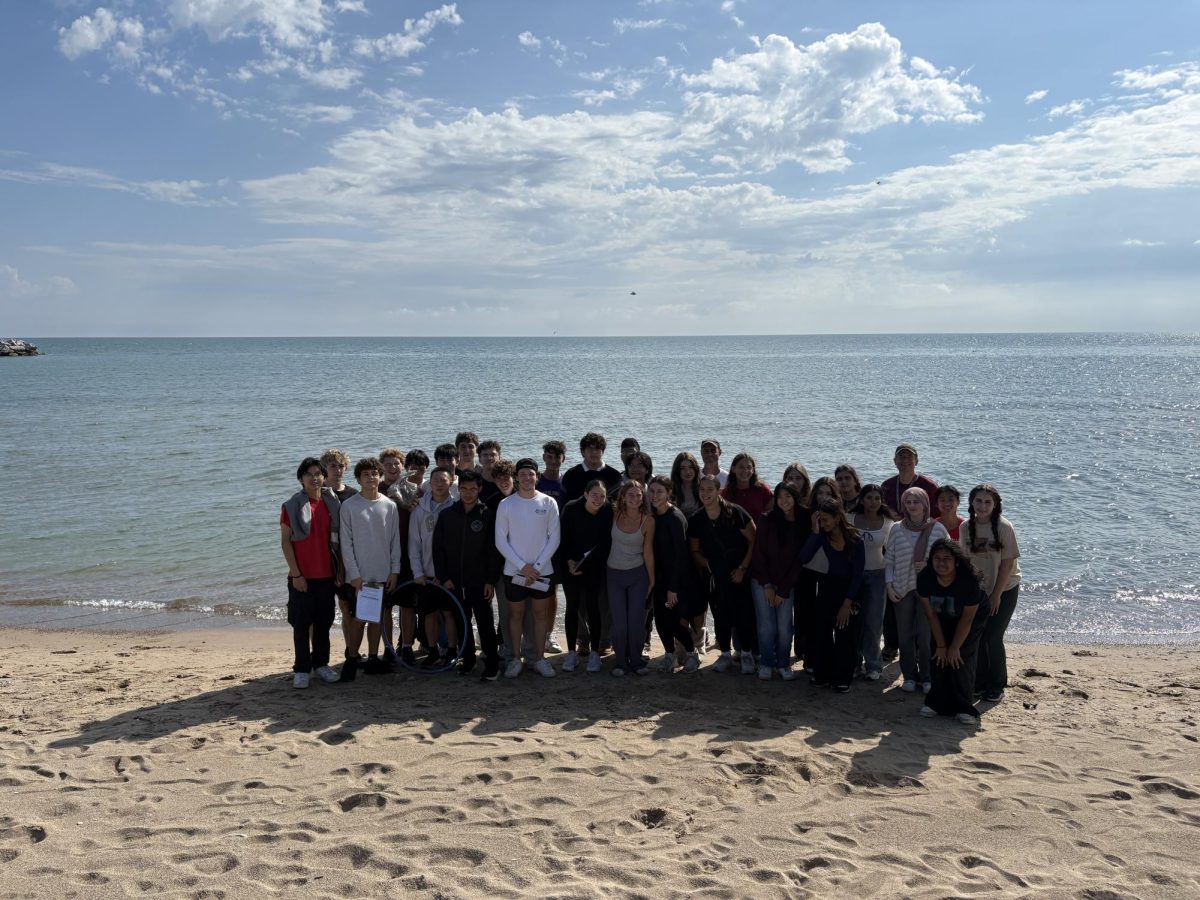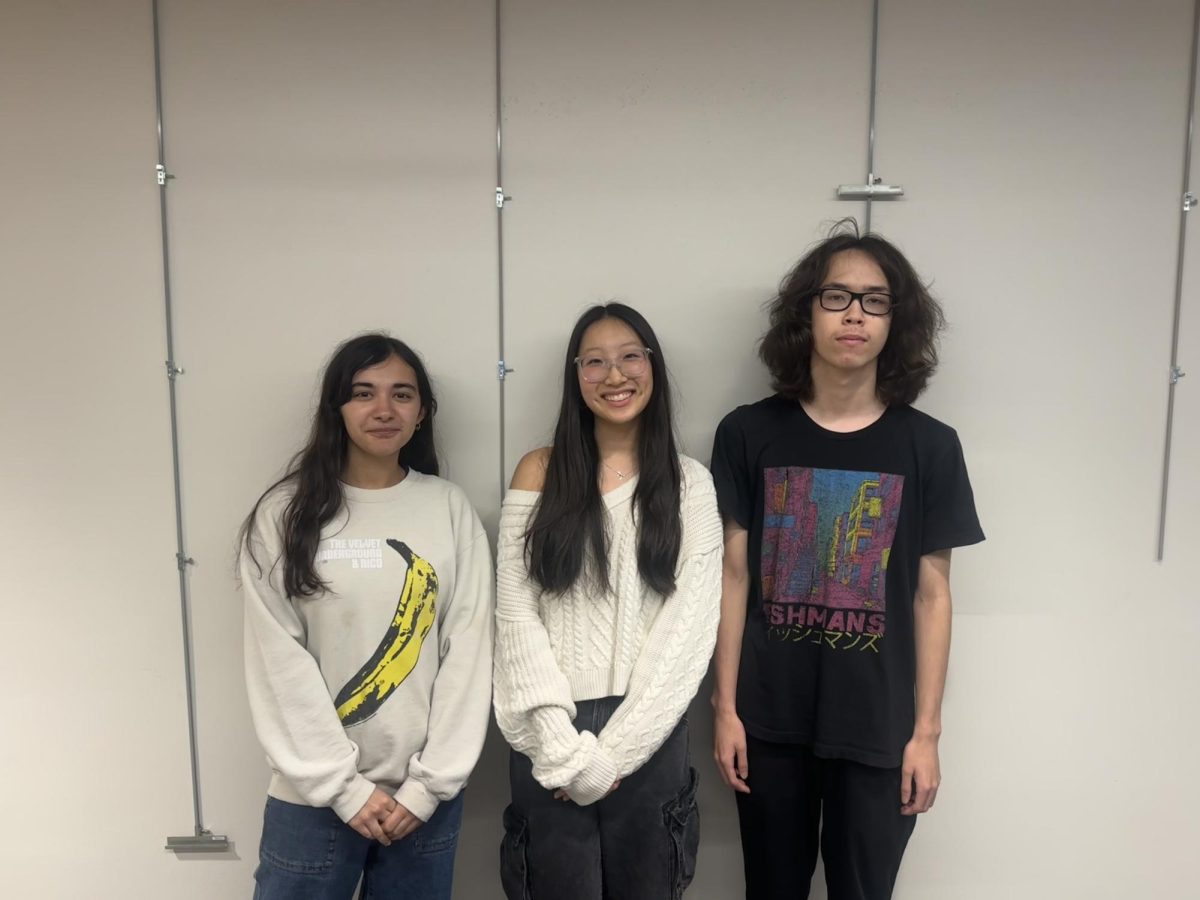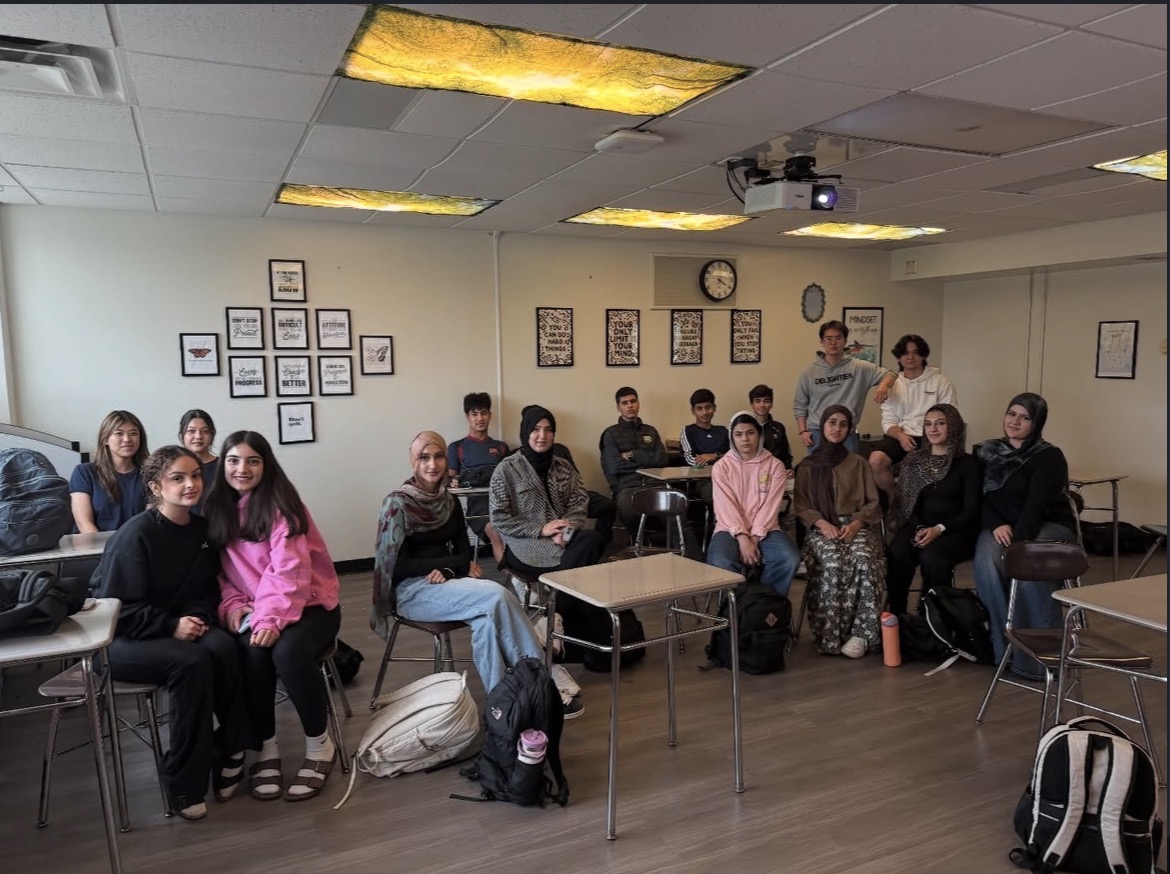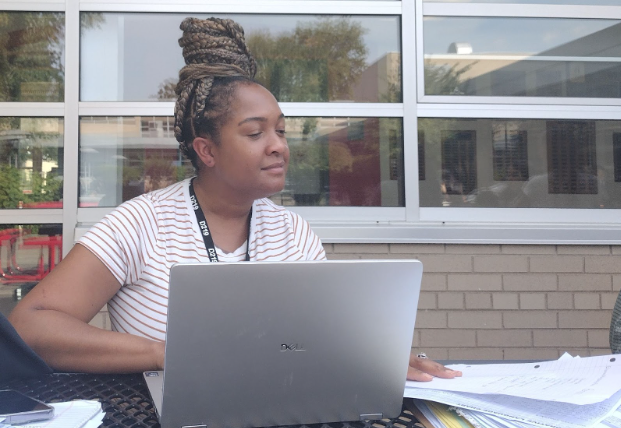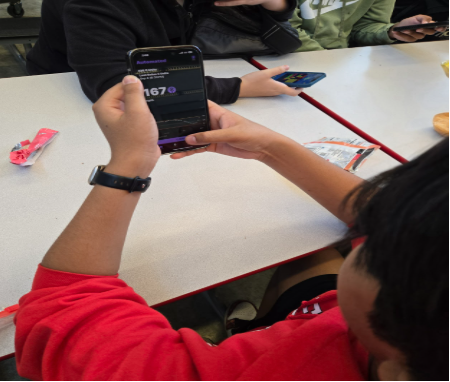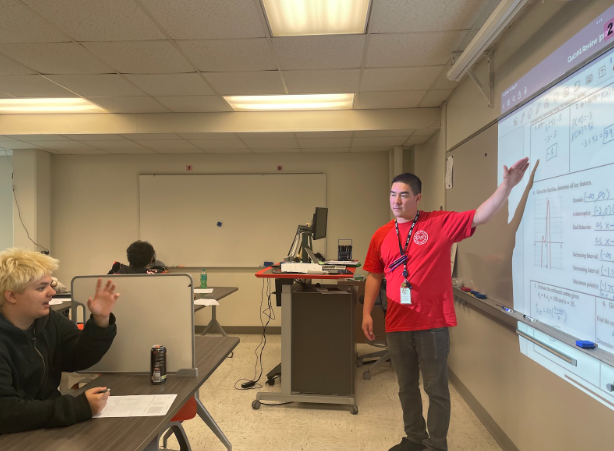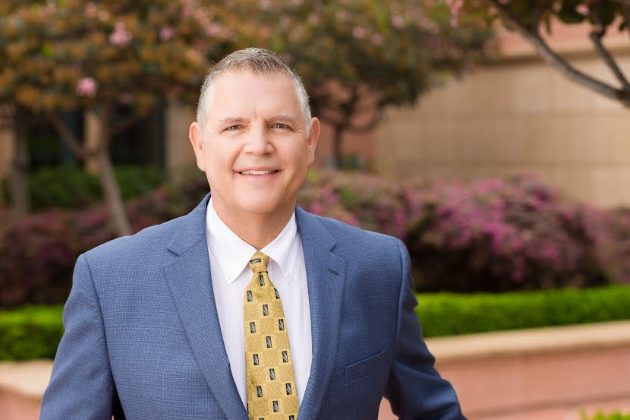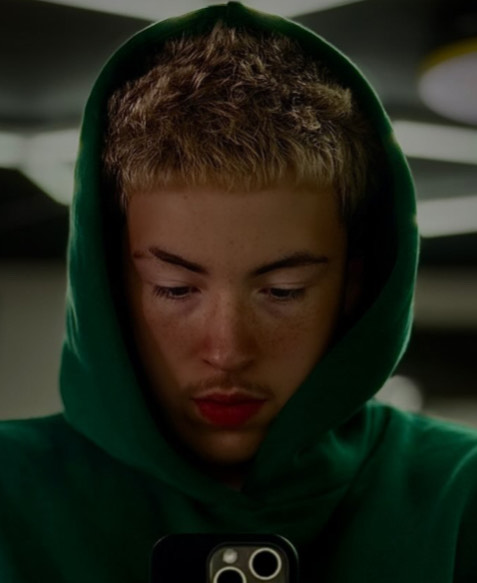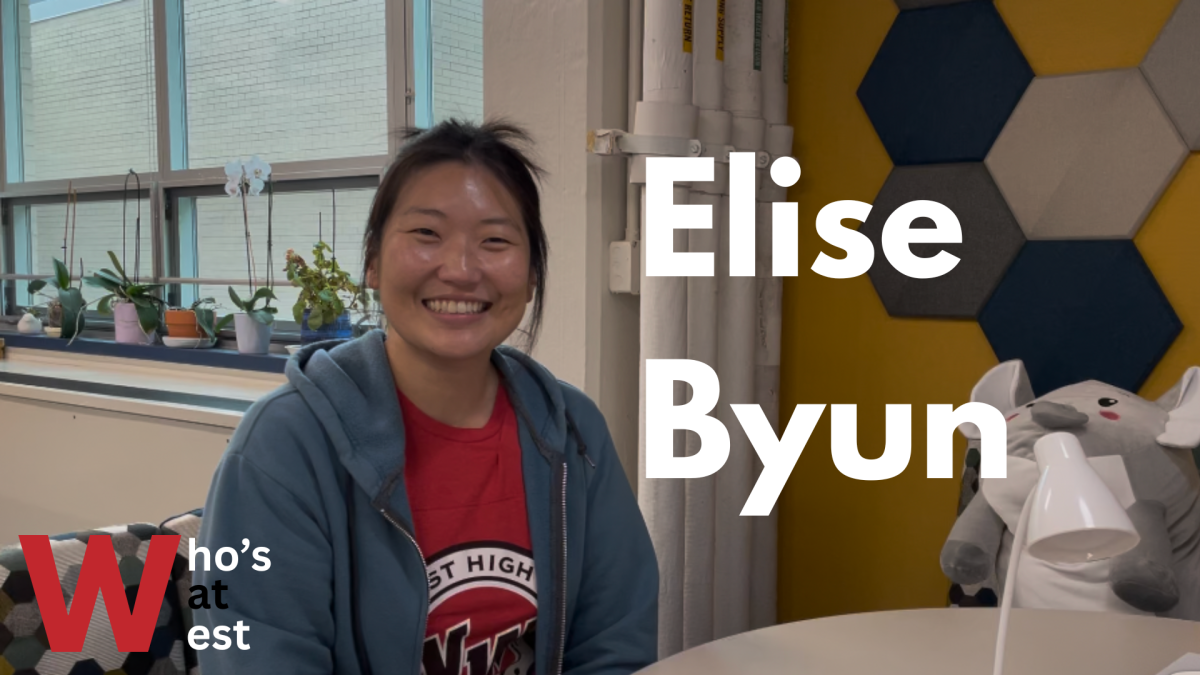Room 2415, a seemingly standard classroom in the biology wing at Niles West, has a lot more to it than first meets the eye. A closet-like area that’s nearly hidden in the back of the room opens up to reveal several towers of greenery, all taking in bright, blinding sunlight from the three walls of windows surrounding them.
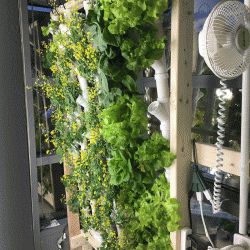
These towers, built from PVC pipes and fittings, are part of a mobile hydroponic system built by German and biology teacher Josef Neumayer and his students. The towers hold rows of lettuce and other greens that the students have been growing for several months.
For those who aren’t aware, the process of growing plants with hydroponics does not utilize any dirt. Instead of getting their nutrients from the ground, their roots are exposed to a nutrient solution. This system is especially attractive since it allows for plants to be grown where there may not be nutrient-rich soil, and it also allows for greater mobility for the system.
Believe it or not, the idea for this sustainability project essentially began in Neumayer’s basement.
“I’m very interested in healthy eating and sustainable agriculture,” he explained. “I design hydroponic tower gardens for fun and grow my own greens over the
winter in my basement, and in the spring/summer/fall in my passive solar greenhouse. Currently, I harvest 22 heads of lettuce and bok choy from my basement weekly, as well as basil, cilantro, mint, swiss chard, kale, collards, and parsley.”
Neumayer decided to bring this project into the classroom as a way to enhance his biology curriculum, as well as to get all of his students, from both his biology and German classes, involved in something bigger.
He applied for and received a grant from the Green Council for School Improvement (GCSI) in order to implement his ideas for the project. GCSI, made up of volunteer staff members and teachers from District 219, grants money to students and faculty who propose and carry out projects that can make our schools more sustainable and environmentally friendly.
Biology teacher and GCSI member Thomas Jodelka was one of the many responsible for approving this ambitious project, which he was enthusiastic about from the beginning.
“Neumayer’s project stood out to us because of how detailed his proposal was,” Jodelka said. “He gave thoughtful, specific responses that indicated how passionate and knowledgeable he was about hydroponics and how the system could be used in a classroom.”
According to Jodelka, around 20 projects are proposed each year, mainly from students in APES classes, the NARWHALS Ecology Club, and other science classes. Depending on the funding available, anywhere from five to ten projects can be approved each year.
The grant that Neumayer received from GCSI helped to fund the system now in place in room 2415, which consists of two hydroponic towers that contain a total of 98 grow sites. Student volunteers were heavily involved throughout the entire process of building the towers, setting up the system, and growing and maintaining the plants.
Building the towers to fit certain parameters was no easy feat, especially when it came to maximizing the space they had while working around other obstacles.
“Students had to figure out how to design the system to fit in the designated space, which became complicated by an H-beam that runs from the ceiling to the floor in the middle of the closet,” Neumayer said. “The other issue was to build a system that contained enough sites for four classes worth of students to have their own plant or for eight classes with students partnering up. The requirement also was for students to be able to access the grow sites without having to get up on a chair. There was a lot of discussion and math involved, and my students came up with great ideas to design the system to fit these requirements.”
Although the students did not begin growing anything until second semester this year, they have been hard at work planning and building the system for several months.
“Once we had our design completed, we worked on building it for about 10 weeks to get the project done for our second semester projects,” Neumayer said. “We started by taking a school van to Menards for supplies, then working sometimes three or four times after school. Students even came in over winter break. They worked hard.”
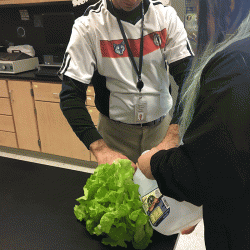
Neumayer’s students really went beyond the typical biology class curriculum. The second semester projects his biology students are working on relate to the genetic discoveries of Gregor Mendel, the “Father of Genetics,” and the structures and life cycles of plants. However, it seems his students have learned about much more than just biology through their involvement in this project.
“[The students were involved in tasks] including carpentry, plumbing, and electrical work, and maintaining the system weekly by germinating seedlings and monitoring and adjusting nutrient and pH levels,” Neumayer explained. “Students also harvested seed pods, which we dried over spring break and planted when we returned.”
Jodelka believes that being involved in a project like this is a unique experience for students to have, as well as one that can influence the kinds of choices they make in the future.
“This project allows students to learn to take care of, and hopefully to respect, another living thing that shares our Earth. There is something to be said for growing a plant from seed to harvest,” he said. “You take ownership over it. It becomes yours. I think that is a special thing for students to experience.”
Students of Neumayer are not the only ones to benefit from this project. Neumayer has big hopes for the system, and believes the project can grow to have a significant impact in the community.
“It would be great if we could grow greens for our community and by doing so increase awareness regarding local and sustainable agricultural production,” he said.
Neumayer was able to explain a few of the many benefits that come from the specific methods of hydroponics that he and his students have been growing their plants with.
“The plants are harvested with their roots intact and then placed in water, so the plants will stay fresh in the fridge for two to three weeks,” he said. “They are not sprayed with pesticides and herbicides, unlike what you find in the stores.”
Neumayer’s projects have only been growing, and there’s sure to be more in store in the future. Right now, his passion is continuing to serve as an inspiration to students and teachers alike.
“I am thankful that we have many teachers in our district who, like Neumayer, have knowledge of something outside of the classroom and are able to bring it into the classroom to show students something that they typically may not experience otherwise,” Jodelka said. “Neumayer’s passion for science, and teaching in general, is evident in this project and its implementation. I am happy that GCSI was able to help him realize his vision.”


